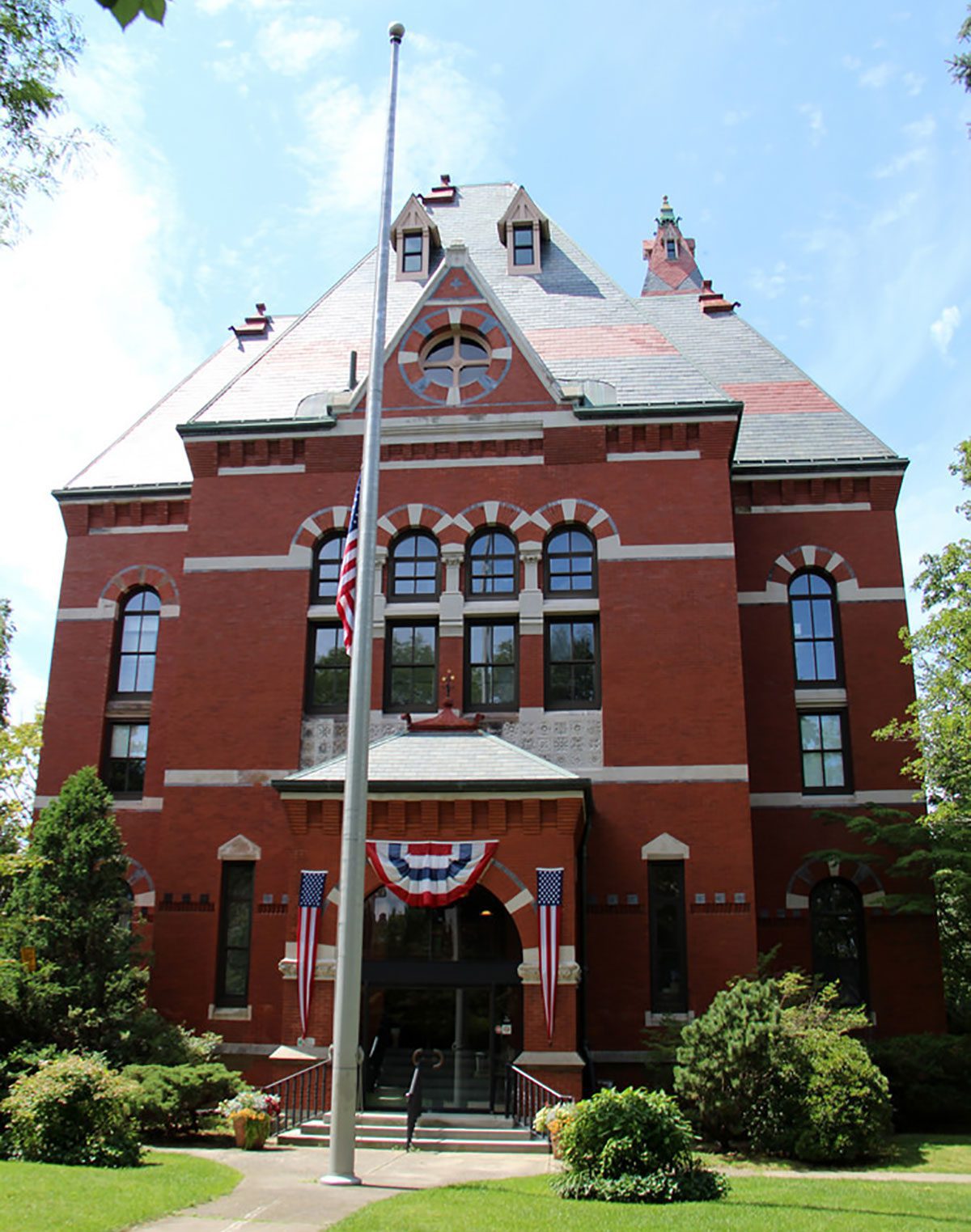ITEM FILE PHOTO
Marblehead Town Hall.
Tucked away at the end of the annual Town Meeting warrant are two articles demonstrating how a small town can simultaneously be a refuge for its residents from rest of the world and a stage for changing the world.
Article 33 asks meeting members to decide if $2,600 should be spent on decorating town commercial areas in December with “garlands, wreaths, ribbon etc.” The request conjures up visions of 1940s holiday movies with soldiers arriving home on leave to find excited relatives waiting for them.
Sponsored by several town residents, the request to spend an absurdly small sum by government standards on making Marblehead holidays happier is a fun example of small town people who love where they live.
In contrast, Article 32 asks meeting members to stride onto a big stage and jump into the never-resolved debate over public campaign spending. The article focuses on the topic of “greater transparency in political donations.”
It goes on to invite Town Meeting members to urge state and federal elected officials to pass legislation providing donation transparency and limit “the influence of money in politics.”
Campaign finance is one of those hot-button subjects almost every candidate for state office of Congress focuses on and points to as a top government reform priority.
Campaign finance is one of those messy and complicated topics that sound good on the surface but can be hard to translate into workable laws.
A long list of legislative bodies have tried and failed to identify who should or should not contribute to campaigns and how much they should be able to contribute.
The question of how political donations translates precisely into influence is often lost or ill-defined during the debate. It will be interesting to see if a clear definition of influence and a prescription for ending campaign finance abuses surfaces during Town Meeting debate.
It will be even more interesting to see if any members raise the “glasshouse” argument — as in, be careful about throwing stones — in regard to campaign finance. A member may well rise and speak on the necessity of Town Meeting addressing campaign spending on the local level before tackling the subject on the state and national level.
In small towns, politics is a personal pursuit with candidates getting to know people and knowing what they want and what they like or do not like. But campaigns cost money and contributors can’t be blamed for having expectations about how far their dollars stretch.
Maybe the more appropriate objective of Article 32 is to focus on transparency in local government and, by extension, on the process of picking local elected officials. That is an exercise that can begin right at home in Marblehead.

